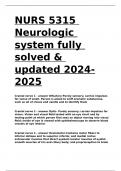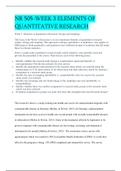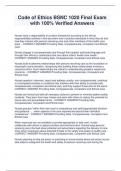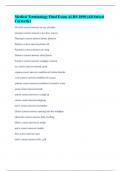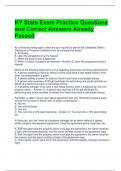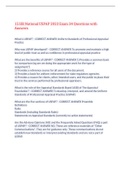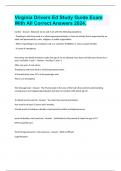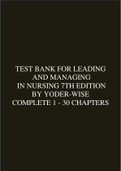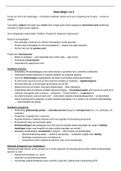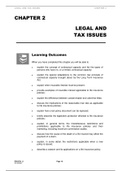Exam (elaborations)
NURS 5315 Neurologic system fully solved & updated
- Course
- Institution
Cranial nerve 1 Olfactory-Purely sensory; carries impulses for sense of smell. Person is asked to sniff aromatic substances, such as oil of cloves and vanilla and to identify them Cranial nerve 2 Optic- Purely sensory; carries impulses for vision. Vision and visual field tested with an eye...
[Show more]
